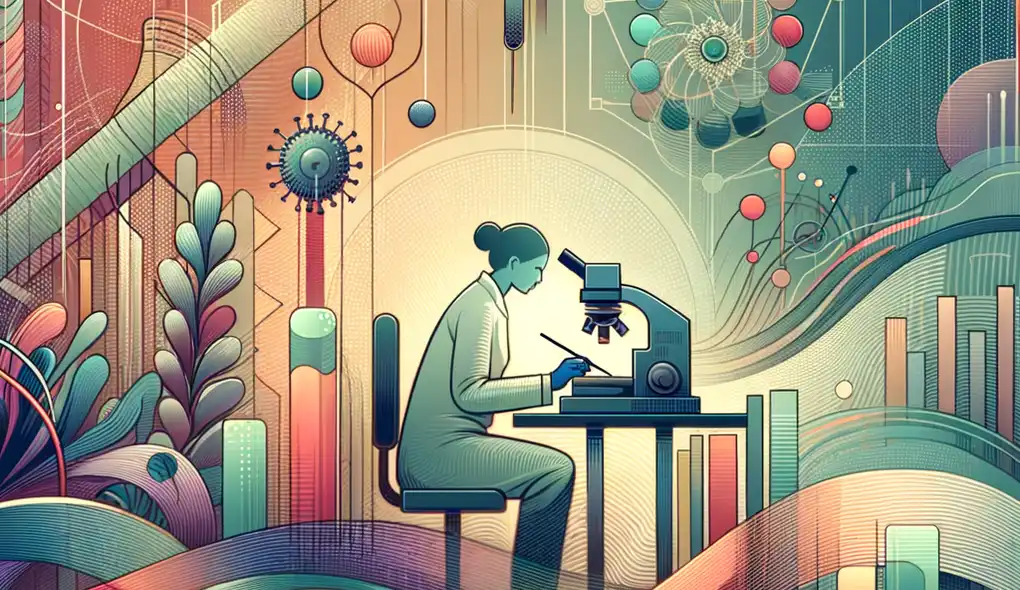How do you ensure compliance with scientific protocols in your experimental design?
Microarray Analyst Interview Questions
Sample answer to the question
In my experimental design, I ensure compliance with scientific protocols by carefully planning and documenting every step of the process. I begin by thoroughly researching the specific protocols and guidelines relevant to the experiment. This includes reviewing published papers and consulting with experts in the field. I then create a detailed experimental design that incorporates all the necessary controls, replicates, and statistical analyses. Throughout the experiment, I closely monitor and track all variables to ensure accuracy and reliability. I also conduct regular quality control checks to identify any potential deviations from the protocols. Lastly, I document every step of the experiment, including any modifications made during the process, to ensure reproducibility and transparency.
A more solid answer
As a Microarray Analyst, ensuring compliance with scientific protocols in my experimental design is crucial. To achieve this, I take a meticulous approach starting from the initial planning phase. I extensively research and review relevant scientific literature to understand the established protocols and guidelines for similar experiments. I also consult with experts in the field to gather insights and recommendations specific to the experiment. This helps me create a comprehensive experimental design that includes all the necessary controls, replicates, and statistical analyses. I pay strong attention to detail while designing the experiment, ensuring that variables are carefully accounted for and that sample sizes are appropriate for generating statistically significant results. During the actual experimentation, I closely monitor and track all variables to detect any potential deviations from the established protocols. If necessary, I make real-time adjustments while ensuring the scientific integrity of the experiment. To maintain quality control, I regularly conduct checks to validate the accuracy and consistency of the data. Finally, I document every step of the experiment, including any modifications or challenges encountered, to ensure full transparency and reproducibility of the results.
Why this is a more solid answer:
The solid answer provides a more detailed explanation of the candidate's approach to ensuring compliance with scientific protocols. It demonstrates their knowledge of the importance of research and consultation, attention to detail, and strong adherence to quality control measures. The answer also highlights their ability to make real-time adjustments while maintaining the integrity of the experiment. However, it could still benefit from more specific examples or anecdotes from past experiences.
An exceptional answer
Ensuring compliance with scientific protocols in my experimental design is a top priority for me as a Microarray Analyst. I believe that a successful experiment starts with a solid understanding of the scientific principles underlying the protocols. To achieve this, I invest considerable time in thoroughly researching and staying up-to-date with the latest literature and advancements in the field. This enables me to design experiments that are not only compliant with established protocols but also incorporate innovative approaches where applicable. For example, in a recent project, I incorporated a statistical analysis technique that was not commonly used in the field but had the potential to provide valuable insights. I communicated and collaborated with the research team and experts to ensure the viability and validity of this approach. Additionally, I believe in the power of cross-functional collaboration. By actively participating in discussions with colleagues from different disciplines, I gain new perspectives and ideas that further enhance my experimental design. I also leverage my problem-solving skills to anticipate and address any challenges that may arise during the design and implementation phases. Finally, I am committed to maintaining open and transparent communication throughout the entire process. By engaging in regular discussions with the research team and presenting my findings in a clear and concise manner, I ensure that everyone is on the same page and that the experiment is conducted with precision and accuracy.
Why this is an exceptional answer:
The exceptional answer provides a comprehensive and nuanced explanation of the candidate's approach to ensuring compliance with scientific protocols. It highlights their commitment to staying updated with the latest advancements in the field and their willingness to incorporate innovative approaches when appropriate. The answer also showcases their strong problem-solving skills and ability to leverage cross-functional collaboration. Additionally, the candidate shares a specific example of how they incorporated a unique statistical analysis technique in a recent project. The answer demonstrates excellent communication skills and emphasizes the importance of open and transparent communication throughout the experiment.
How to prepare for this question
- Familiarize yourself with established scientific protocols and guidelines relevant to your field of expertise. Stay updated with the latest research and advancements in the field.
- Invest time in thoroughly researching and reviewing relevant scientific literature to gain a solid understanding of the principles underlying the protocols.
- Seek advice and insights from experts in the field to gather recommendations and best practices specific to your experiment.
- Develop strong problem-solving skills to anticipate and address any challenges that may arise during the experimental design and implementation phases.
- Emphasize the importance of open and transparent communication with the research team throughout the entire process. Practice presenting complex data in a clear and concise manner.
What interviewers are evaluating
- Experimental Design
- Attention to Detail
- Communication and Presentation
- Problem-Solving
Related Interview Questions
More questions for Microarray Analyst interviews